Jonathan Pollack spoke to Vox about the concerns of a preemptive U.S. strike on North Korea, Pyongyang’s response, and implications for Japan and South Korea.
Zeeshan Aleem
What would the US actually target in the case of a preemptive strike?
Jonathan Pollack
The implication is we would target their [nuclear] test site, we would target every other location we presume they might have nuclear materials or nuclear weapons hidden — and North Korea, lord knows, has lots of mountains and caves. Many would presume that we would [target] the top leadership if you could locate them and know where they are, and a lot of what they do is underground.
If you’re in an all-bets-are-off scenario, then you’re going to utilize every capability that you have, you’re going to mobilize every warplane. If North Korea is about to embark on something that is so extreme and so dire that it must be prevented at all costs, you must: 1) do so by whatever means you have [to] prevent that attack from occurring, and 2) deny North Korea any plausible means to retaliate for the attack that would be initiated against them. Those two are very tall orders.
You can get lots of targets — North Korea has more than a million men under arms, they’ve got tunnel complexes, nuclear sites. Could we throw everything but the kitchen sink at it? I guess.
But this is also analyzed to death, and when we look at it, we come to the same conclusion every time: We would “win a war,” but the price our allies [would pay] far exceeds whatever the gains would be. This is why they call [North] Korea “the land of no good options.”
Zeeshan Aleem
What would the North Korean response be?
Jonathan Pollack
If, for sake of argument, the US decides to embark on a preemptive attack — which I do not in any way, shape, or form endorse or anticipate — then we had better get ready for a very big war.
If you go in and think you’re just going to do the equivalent of a “surgical strike” — we’re just going to take out their testing site — and assume that nothing else bad is going to happen, that’s very bad planning.
It would be a very big war. It would have to be, if you want to prevent something really, really bad from happening as a consequence of your initiating a war, given the kinds of capability that North Korea demonstrably has — hundreds of missiles, thousands of artillery pieces, nuclear weapons, special forces, you name it.
Zeeshan Aleem
What could happen to Japan and South Korea?
Jonathan Pollack
The risk would be that Japan would be the only country in the history of civilization to have been attacked yet again with a nuclear weapon. You would see devastation of all kinds directed against South Korea. You could assume, for example — and you don’t even need nuclear weapons to do it — direct attacks on South Korea’s nuclear reactor complex. South Korea has one of the most developed nuclear energy components of any country in the world.
“The North is very serious about war. They plan for war, they train for war, they have huge armed forces. And under circumstances of a direct attached by the US on their territory, I don’t think they would have a lot of incentives for restraint.”
You’re talking about Seoul, a city which, including its environs, is more than 20 million people that is within artillery range of North Korea. You’re quite possibly talking about use of chemical weapons. The North is very serious about war. They plan for war, they train for war, they have huge armed forces. And under circumstances of a direct attack by the US on their territory, I don’t think they would have a lot of incentives for restraint.
Zeeshan Aleem
Pyongyang can fire nuclear warheads that would reach Japan?
Jonathan Pollack
That’s one of the great debates — whether they’ve miniaturized a warhead sufficiently to be able to put it atop a missile and reach targets in Japan and maybe beyond. And a lot of Americans are very seized by the idea that North Korea plans an intercontinental ballistic missile, but the reality is their threat right now, whatever capabilities they do have of this sort, they’re regional; they’re not intercontinental.
That’s worrisome enough to me at least, and to many others. But it’s a very hard thing to prove. North Korea would like us to believe they have these capabilities, but they have never tested a nuclear weapon on a missile. That’s an international norm they have yet to violate.
But an argument in many circles is that that’s not a risk you can take lightly — you have to make assumptions as if they have that kind of capability.
Zeeshan Aleem
And how would China and Russia feel about a preemptive attack?
Jonathan Pollack
China has a 1,400-kilometer shared border with North Korea, and you have ethnic Koreans living in northeastern China. Russia’s border with North Korea is tiny, but they have interests of their own as well. Both Russia and China would see this as a profound failure of the [nuclear] nonproliferation system if the US is prepared, by definition of its own interests, to undertake these kinds of attacks in the face of opposition from just about everybody else, to do it unilaterally.
Zeeshan Aleem
So I’m pretty sure you think a preemptive strike wouldn’t be a good idea.
Jonathan Pollack
I understand that some people see North Korea as such an inherent danger that we can’t rule out them doing something so extreme that we have to therefore act before they act. And I don’t trivialize the North: These are people who are heavily armed, they put enormous resources into these programs, and the consequences for their own people — their livelihood, their well-being — are pretty substantial.
But a lot of it boils down to whether or not you believe that a nuclear weapon would be a usable capability. If I’m just reacting to what the North Koreans say — and I’m not saying I therefore accept it — most of their arguments are that they’re claiming these nuclear weapons are for deterrence — in essence, the same thing we say all the time.
A lot of people wouldn’t believe that; they look at the government’s cruelty toward its own citizens, they look at it assassinating a family member in a foreign airport, they look to when North Korea shot down a South Korean aircraft trying to prevent the Olympics from going to Seoul in 1988. The argument would go [that] there’s no lengths to which these guys won’t go if presented the opportunity.
So first things first, you have to make clear to them, and I think we do make clear to them, that if they cross a range of thresholds, they will have destruction heaped upon them on a scale that is unimaginable. We can only hope that that really keeps them in the box they are in, because the box is one of their own making, frankly.
I readily accept that this does not come cheaply, but I don’t know that we or anyone else has alternatives. Some people would say you could negotiate with them, and that’s tried from time to time, but I’m also familiar enough with what they expect from that process, and it’s not a price that any American president would be prepared to pay.
Zeeshan Aleem
You say there are no good options. What’s the least worst option for handling North Korea?
Jonathan Pollack
The least worst options are what we’re doing. Number one, we are reinforcing our military presence on the peninsula and the surrounding areas to make it abundantly clear that we will respond to anything severe that North Korea undertakes.
Not that I’m a huge believer in missile defense, but we’re augmenting those kind of capabilities like THAAD with the hopes that, in the unlikely event that North Korea would use missiles against the South, you shoot them down before they hit South Korean or Japanese territory.
Number two, give absolute assurance to your Korean and Japanese allies that we’re going to be with them through thick and thin, that we won’t cut side deals that will disadvantage them. They’ve got to know that — if they don’t know that, what you’re going to see is a sentiment over time, in both Korea and Japan, that says, “You know, maybe we really can’t rely on the US; maybe we need some of these weapons of our own.”
Number three, we have to work as closely as we possibly can with China in particular to work toward more of a coordinated strategy. The game we have played with China, and that China plays with us, is that we always tell China, “You could bring these guys to heel; if you really, really wanted to do it, you could.” The Chinese will say, “You Americans, you’re the threat to them,” and so on. We blame one another — that creates running room for North Korea.
The US and China have compelling shared interests — neither China nor the US wants to see in perpetuity a nuclear-armed North Korea. And the other core shared conviction of the US and China is that we don’t want another Korean War on the peninsula; it would be a disaster of unimaginable proportions.
We have to be prepared that this is going to be a longer-term effort to constrict what North Korea does, to make life as difficult as we can for them, to deny them external economic opportunities, to not legitimate in any way the nuclear weapons they possess. All of this is going to be tough and demanding and long term.
The Brookings Institution is committed to quality, independence, and impact.
We are supported by a diverse array of funders. In line with our values and policies, each Brookings publication represents the sole views of its author(s).
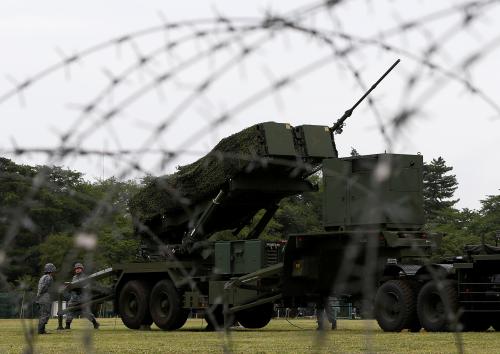
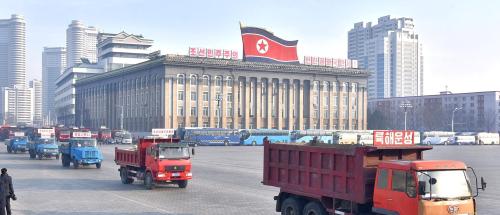
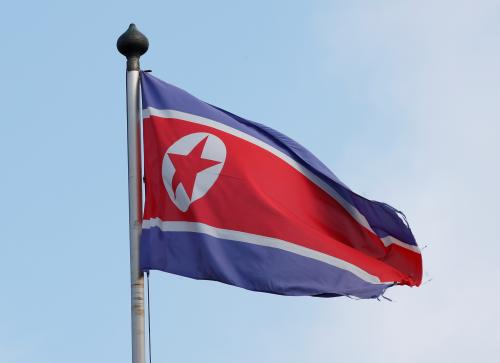
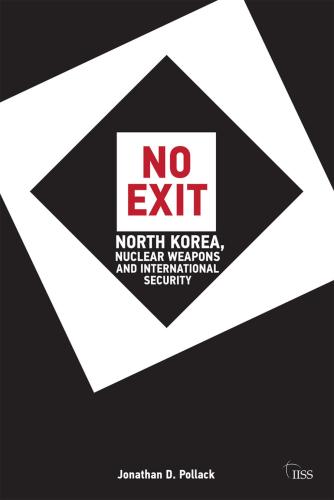

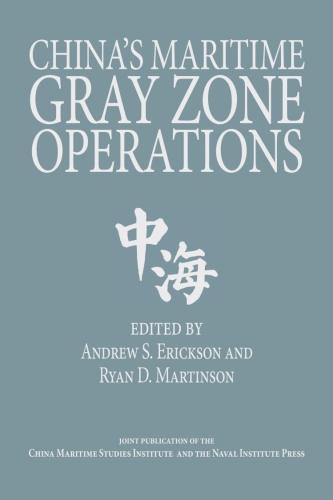


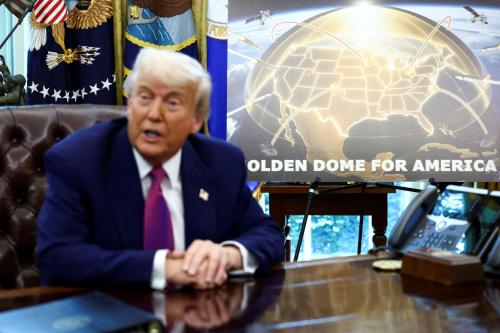
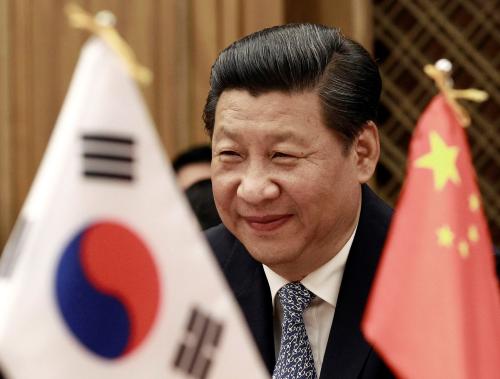
Commentary
An expert warns that a preemptive strike on North Korea would lead to “very big war”
April 18, 2017